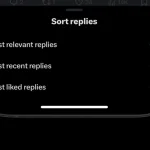- Data scientist Pranjali Ajay Parse detailed the real-world demands of an AI career.
- She emphasized that AI positions require a diverse set of interdisciplinary skills and extensive teamwork.
- Parse also stressed the importance of addressing privacy concerns and ethical considerations in AI roles.
An AI job involves much more than just coding.
Just ask 25-year-old Pranjali Ajay Parse, a data scientist at Autodesk. She’s been developing an AI tool that offers employees insights into their work patterns, including meeting trends and daily routines.
With a master’s degree in computer science and over a year of experience at Autodesk, Parse has gained a clear understanding of what it’s really like to work in AI — and it’s not what many might expect.
Parse emphasized that AI roles are highly interdisciplinary and heavily reliant on collaboration. Despite being a tech-driven field, these positions also demand a strong focus on ethics. In a discussion with Business Insider, she debunked some common myths about careers in AI.
There’s more to it than just coding.
Pranjali emphasized that simply being proficient in Python isn’t enough to land a job in AI.
She mentioned that while a degree in AI isn’t mandatory, candidates should be skilled in case study analysis, SQL querying, and coding. Parse suggested that aspiring professionals can enhance these skills through boot camps or personal projects.
“AI is inherently interdisciplinary,” Parse explained. “It integrates various fields, including mathematics, computer science, statistics, and domain-specific expertise.”
According to Parse, about 70% of her role involves data science tasks, such as reviewing and analyzing data sets. The remainder of her time is dedicated to software engineering, building pipelines, data engineering, architectural design, and a significant amount of mathematics.
Parse also highlighted the importance of staying current with advancements in related fields, as the technology is continually evolving.
AI roles are frequently highly collaborative.
Software engineers might be known for working independently, but don’t expect solitude in an AI role.
While some engineering positions may be more solitary, Parse pointed out, “AI projects are rarely a solo effort.” This is partly due to AI being a rapidly evolving technology that demands collaboration across multiple teams and stakeholders, she explained.
For instance, Parse mentioned that she collaborates with seven or eight different teams when working on an AI recommendation system project.
In her experience, the process begins with data collection and preparation by the data analysis team. Next, data scientists apply statistical methods and modeling. The machine learning team then develops and fine-tunes the model. Once the model is complete, UX and UI experts design the user interface, and software engineers build the front end.
Finally, the marketing team defines the product’s launch strategy.
“An end-to-end AI project involves extensive communication and collaboration,” Parse emphasized.
Privacy teams are often deeply embedded in the process when sensitive data is handled during AI development.
Parse said the privacy protocols are extensive. When working with a person’s data, employees need to receive permission for tasks. Projects also require robust production measures, like pseudonymizing identities and ensuring models don’t “inadvertently recreate biases or create inequitable outcomes.”
This requires complying with legal and regulatory requirements, she said. It also means thinking about the long-term implications of projects, including potential unintended consequences and ethical dilemmas.
While privacy may seem like an obvious consideration for those working in AI, Parse said it can be easy to get caught up in how the models perform. Also, since so many teams contribute to the product, it can be easy to focus on your specific task rather than the overarching implications, she added.
Parse said it’s up to companies to train employees on proper privacy and ethical guidelines. But it’s also important for employees to consider a third-person perspective on the work they’re doing.
Read the original article on Business Insider
Read More news on Technology:







